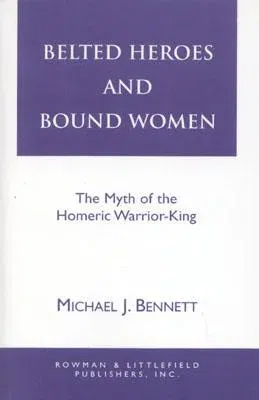Michael J Bennett
(Author)Belted Heroes and Bound Women: The Myth of the Homeric Warrior KingPaperback, 1 March 1997

Qty
1
Turbo
Ships in 2 - 3 days
In Stock
Free Delivery
Cash on Delivery
15 Days
Free Returns
Secure Checkout
Part of Series
Greek Studies: Interdisciplinary Approaches
Part of Series
Greek Studies: Interdisciplinary Approaches (Paperback)
Part of Series
Greek Studies
Print Length
256 pages
Language
English
Publisher
Rowman & Littlefield Publishers
Date Published
1 Mar 1997
ISBN-10
0822630613
ISBN-13
9780822630616
Description
Product Details
Author:
Book Format:
Paperback
Country of Origin:
US
Date Published:
1 March 1997
Dimensions:
22.86 x
15.24 x
1.4 cm
Genre:
Ancient (To 499 A.D.)
ISBN-10:
0822630613
ISBN-13:
9780822630616
Language:
English
Location:
Lanham, MD
Pages:
256
Publisher:
Series:
Weight:
353.8 gm

